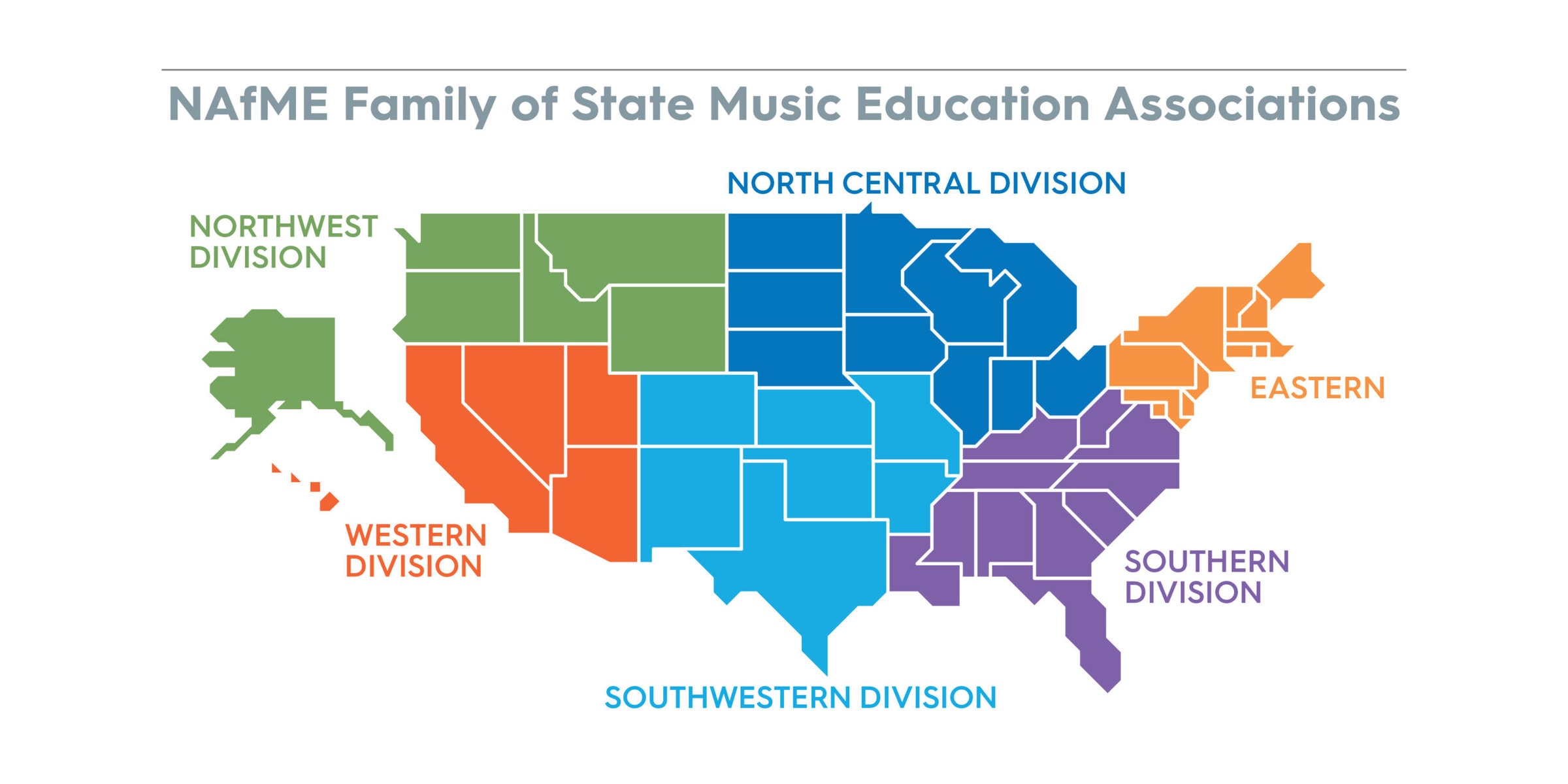State Music Education Associations
Welcome to the family of NAfME state music education associations! As indicated by the NAfME Constitution and Bylaws, NAfME national membership must be unified with one or more federated state association of NAfME, if any such association is recognized by the National Executive Board. This reciprocal relationship is critical to the growth and stability of the national and state associations and to the advancement of our mutual goals for the profession. Find out more about our state affiliates below.
Eastern
- Connecticut Music Educators Association
- Delaware Music Educators Association
- European Music Educators Association
- Maine Music Educators Association
- Maryland Music Educators Association
- Massachusetts Music Educators Association
- New Hampshire Music Educators Association
- New Jersey Music Educators Association
- New York State School Music Association
- Pennsylvania Music Educators Association
- Rhode Island Music Education Association
- Vermont Music Educators Association
- Washington, DC, Music Education Association
North Central
- Indiana Music Education Association
- Iowa Music Educators Association
- Michigan Music Education Association
- Minnesota Music Educators Association
- Nebraska Music Education Association
- North Dakota Music Educators Association
- Ohio Music Education Association
- South Dakota Music Education Association
- Wisconsin Music Educators Association
Northwest
- Alaska Music Educators Association
- Idaho Music Educators Association
- Montana Music Educators Association
- Oregon Music Education Association
- Washington Music Educators Association
- Wyoming Music Educators Association
Southern
- Alabama Music Educators Association
- Florida Music Education Association
- Georgia Music Educators Association
- Kentucky Music Educators Association
- Louisiana Music Educators Association
- Mississippi Music Educators Association
- North Carolina Music Educators Association
- South Carolina Music Educators Association
- Virginia Music Educators Association
- West Virginia Music Educators Association
Southwestern
- Arkansas Music Educators Association
- Colorado Music Educators Association
- Kansas Music Educators Association
- Missouri Music Educators Association
- New Mexico Music Educators Association
- Oklahoma Music Educators Association
- NAfME-Texas



